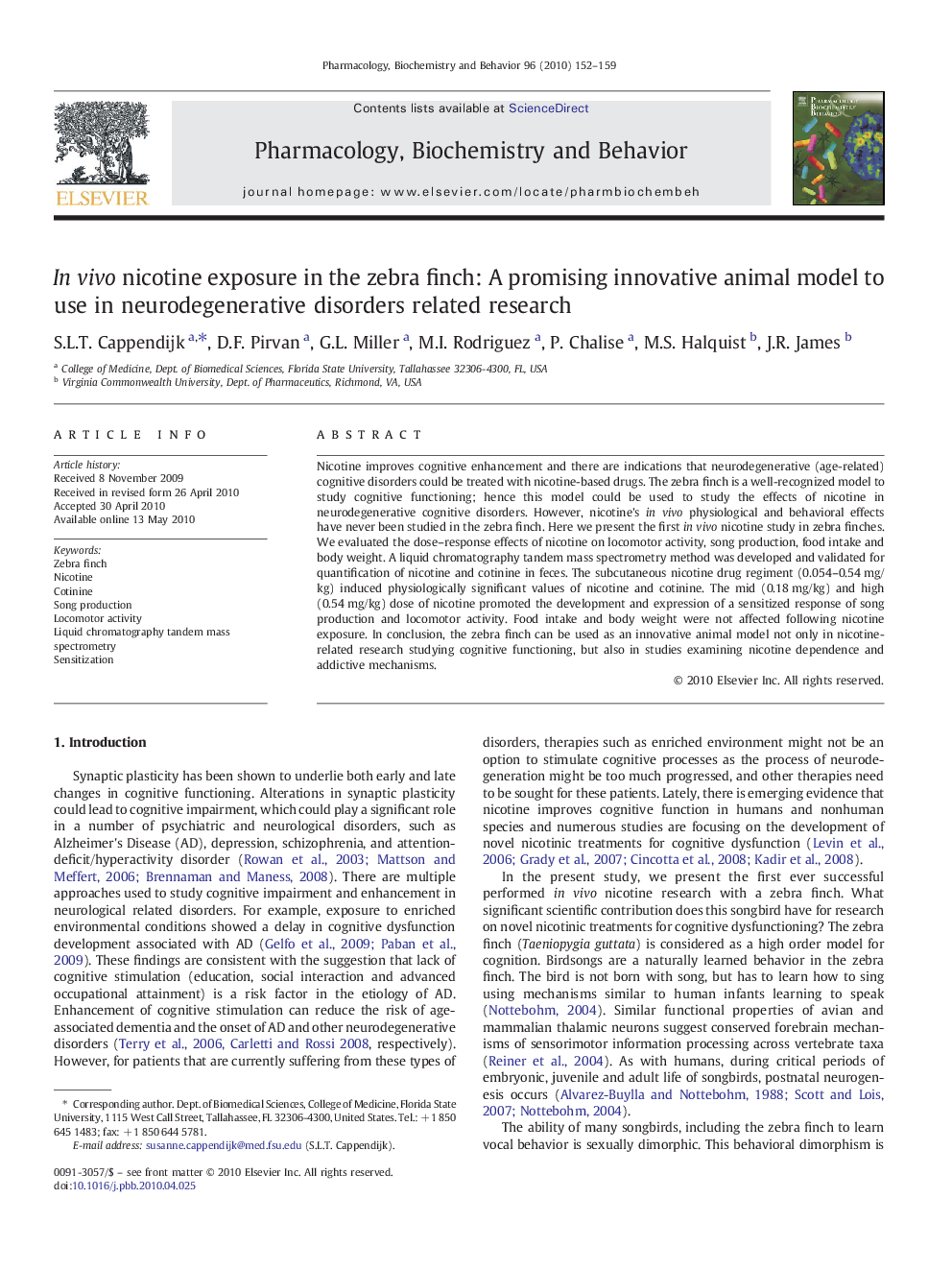| Article ID | Journal | Published Year | Pages | File Type |
|---|---|---|---|---|
| 2013392 | Pharmacology Biochemistry and Behavior | 2010 | 8 Pages |
Abstract
Nicotine improves cognitive enhancement and there are indications that neurodegenerative (age-related) cognitive disorders could be treated with nicotine-based drugs. The zebra finch is a well-recognized model to study cognitive functioning; hence this model could be used to study the effects of nicotine in neurodegenerative cognitive disorders. However, nicotine's in vivo physiological and behavioral effects have never been studied in the zebra finch. Here we present the first in vivo nicotine study in zebra finches. We evaluated the dose-response effects of nicotine on locomotor activity, song production, food intake and body weight. A liquid chromatography tandem mass spectrometry method was developed and validated for quantification of nicotine and cotinine in feces. The subcutaneous nicotine drug regiment (0.054-0.54Â mg/kg) induced physiologically significant values of nicotine and cotinine. The mid (0.18Â mg/kg) and high (0.54Â mg/kg) dose of nicotine promoted the development and expression of a sensitized response of song production and locomotor activity. Food intake and body weight were not affected following nicotine exposure. In conclusion, the zebra finch can be used as an innovative animal model not only in nicotine-related research studying cognitive functioning, but also in studies examining nicotine dependence and addictive mechanisms.
Keywords
Related Topics
Life Sciences
Biochemistry, Genetics and Molecular Biology
Biochemistry
Authors
S.L.T. Cappendijk, D.F. Pirvan, G.L. Miller, M.I. Rodriguez, P. Chalise, M.S. Halquist, J.R. James,
